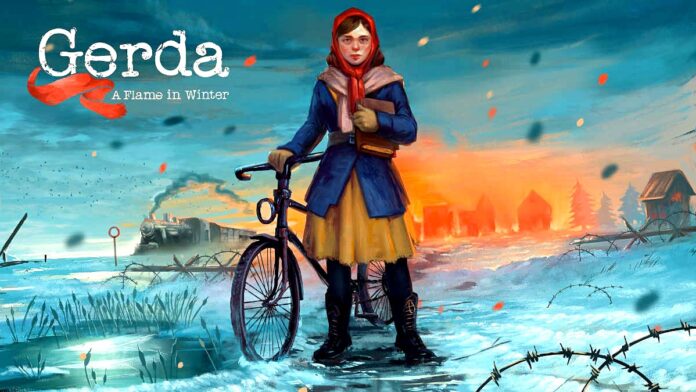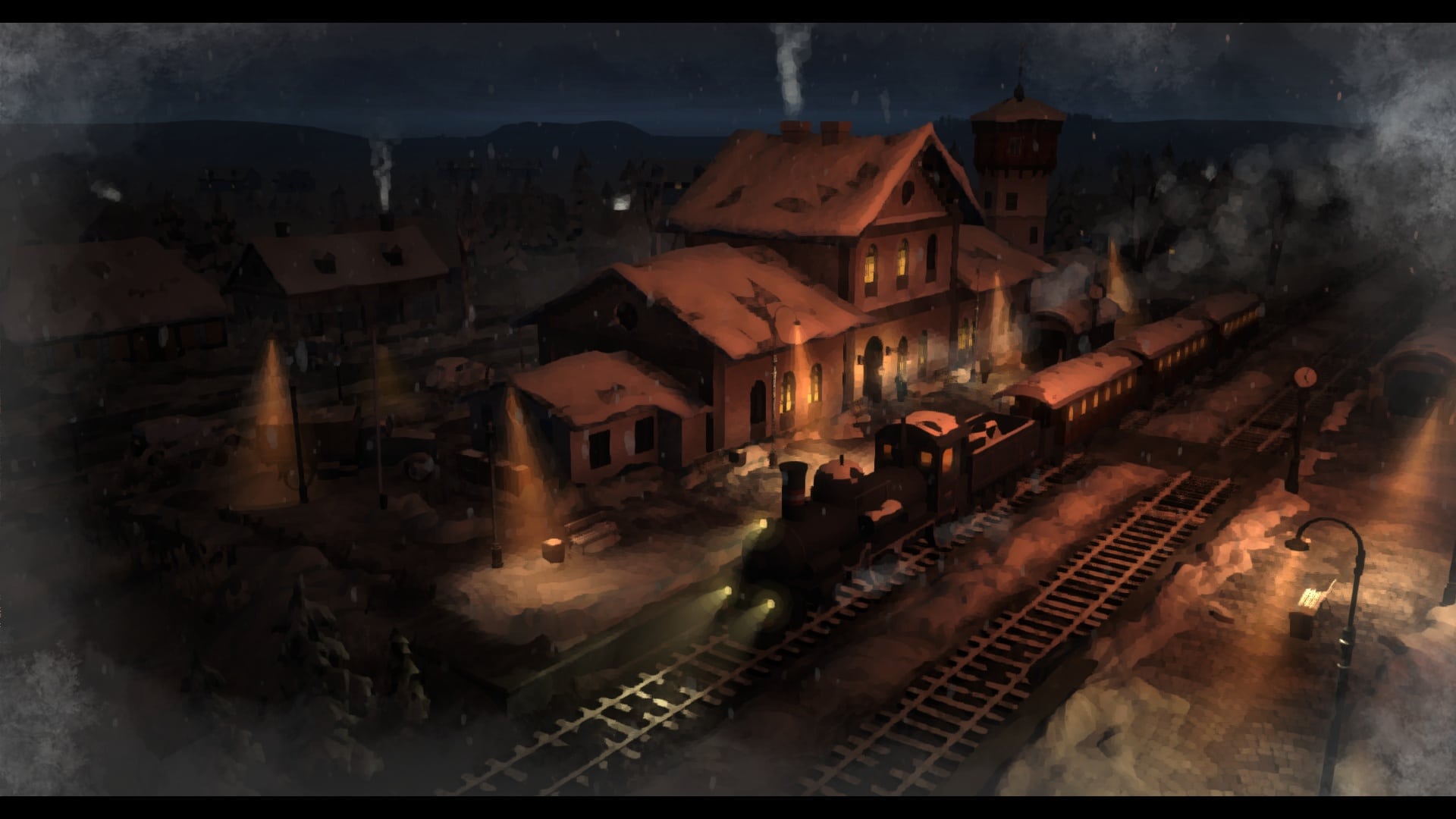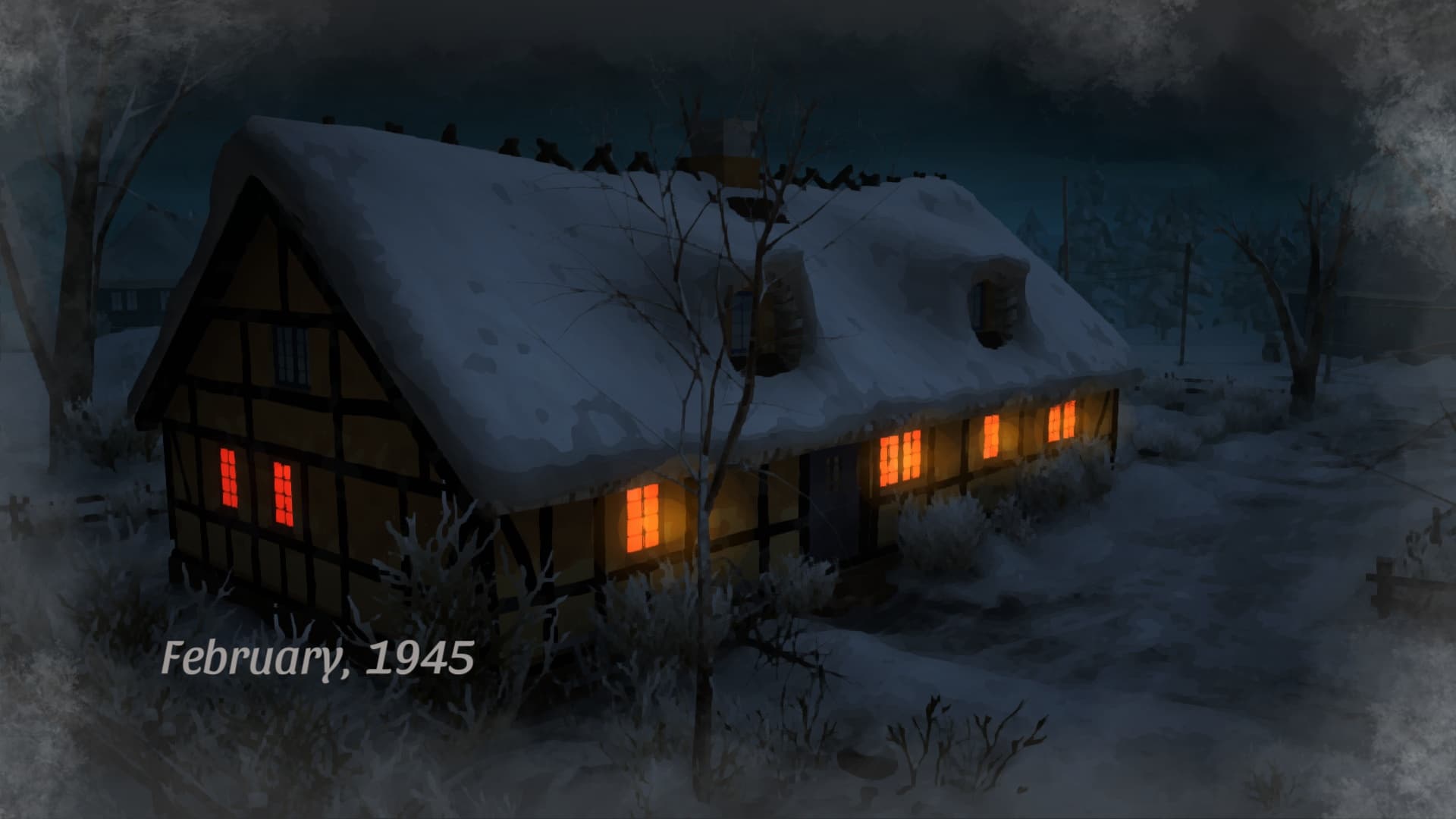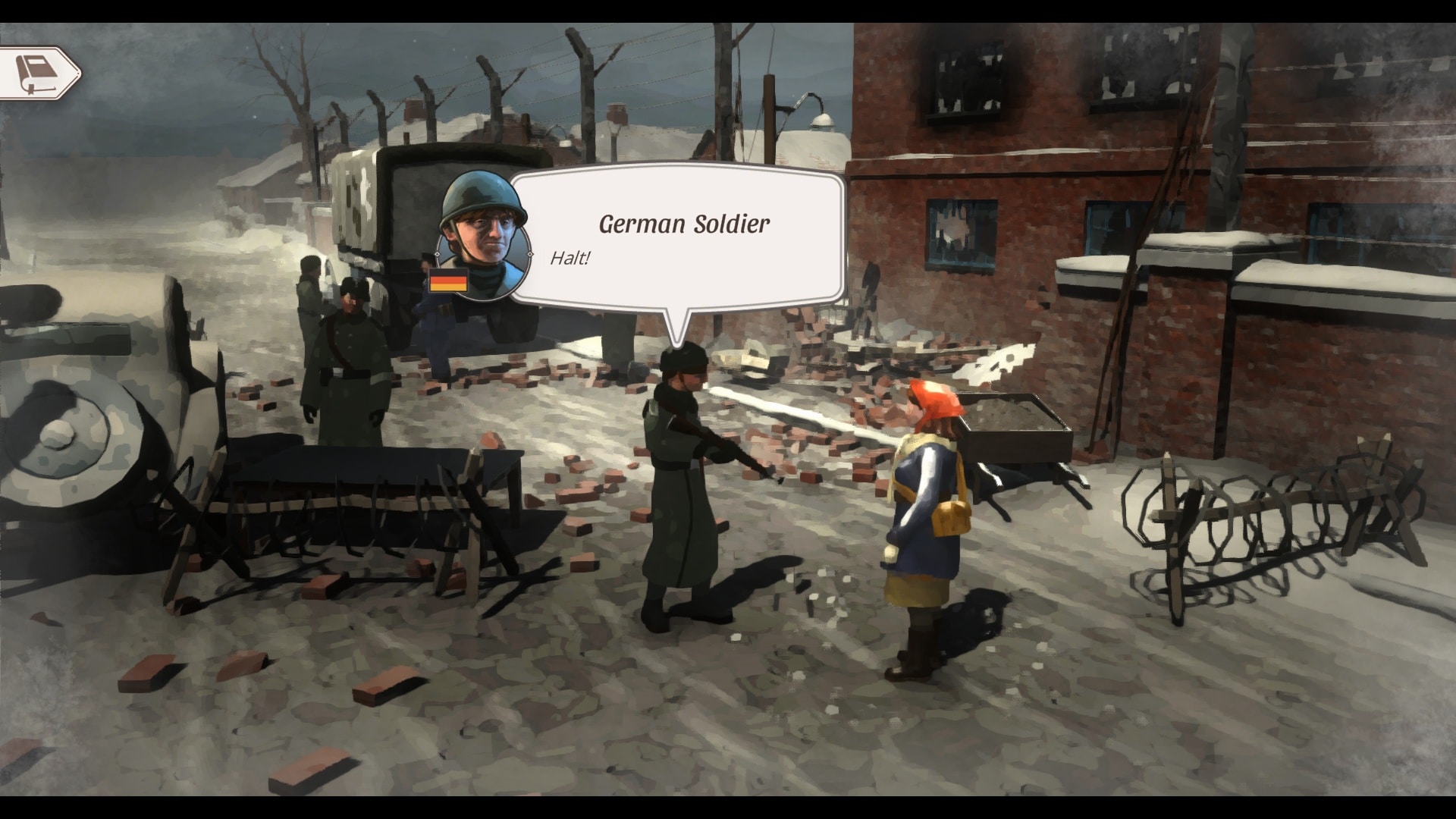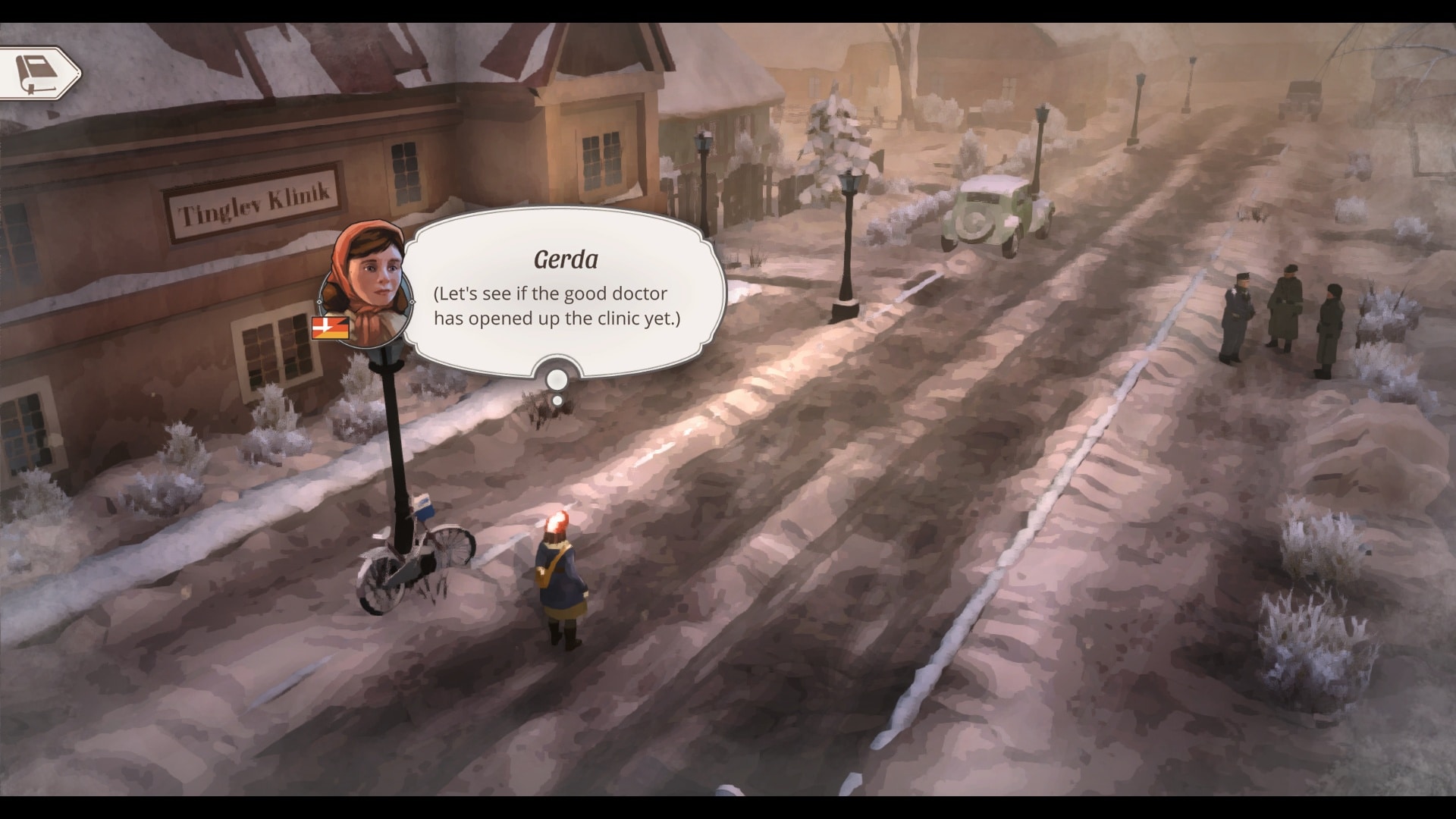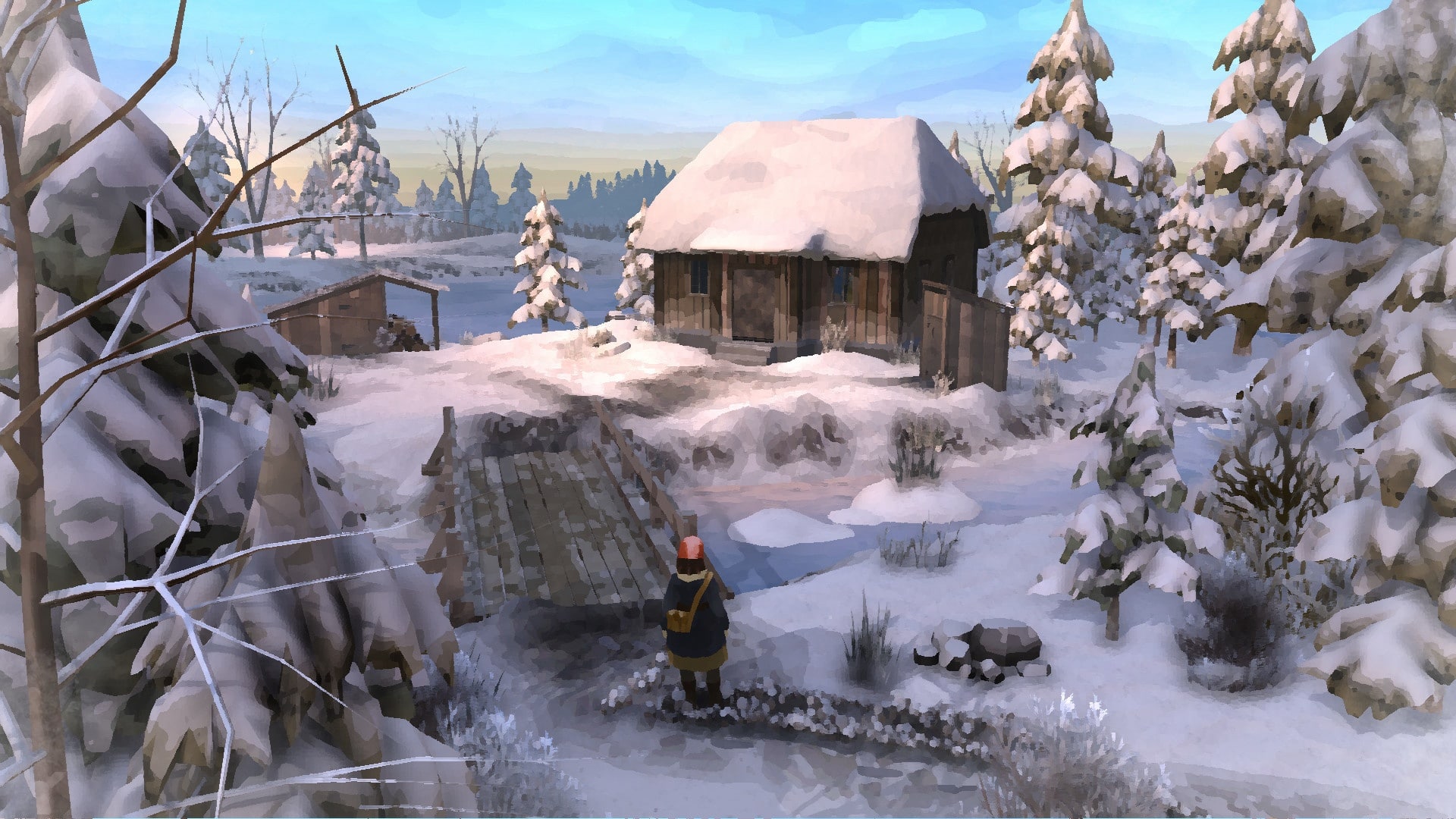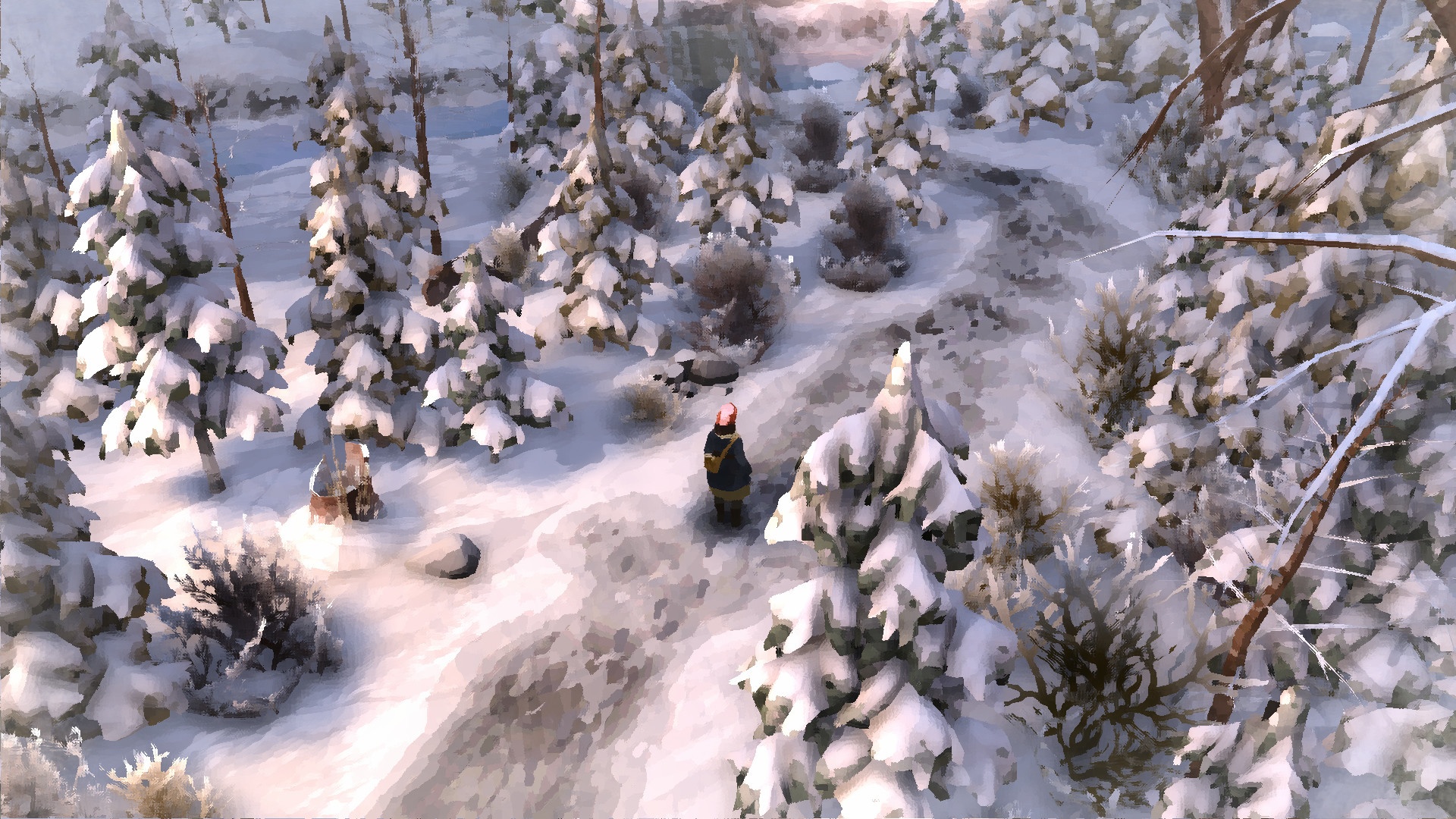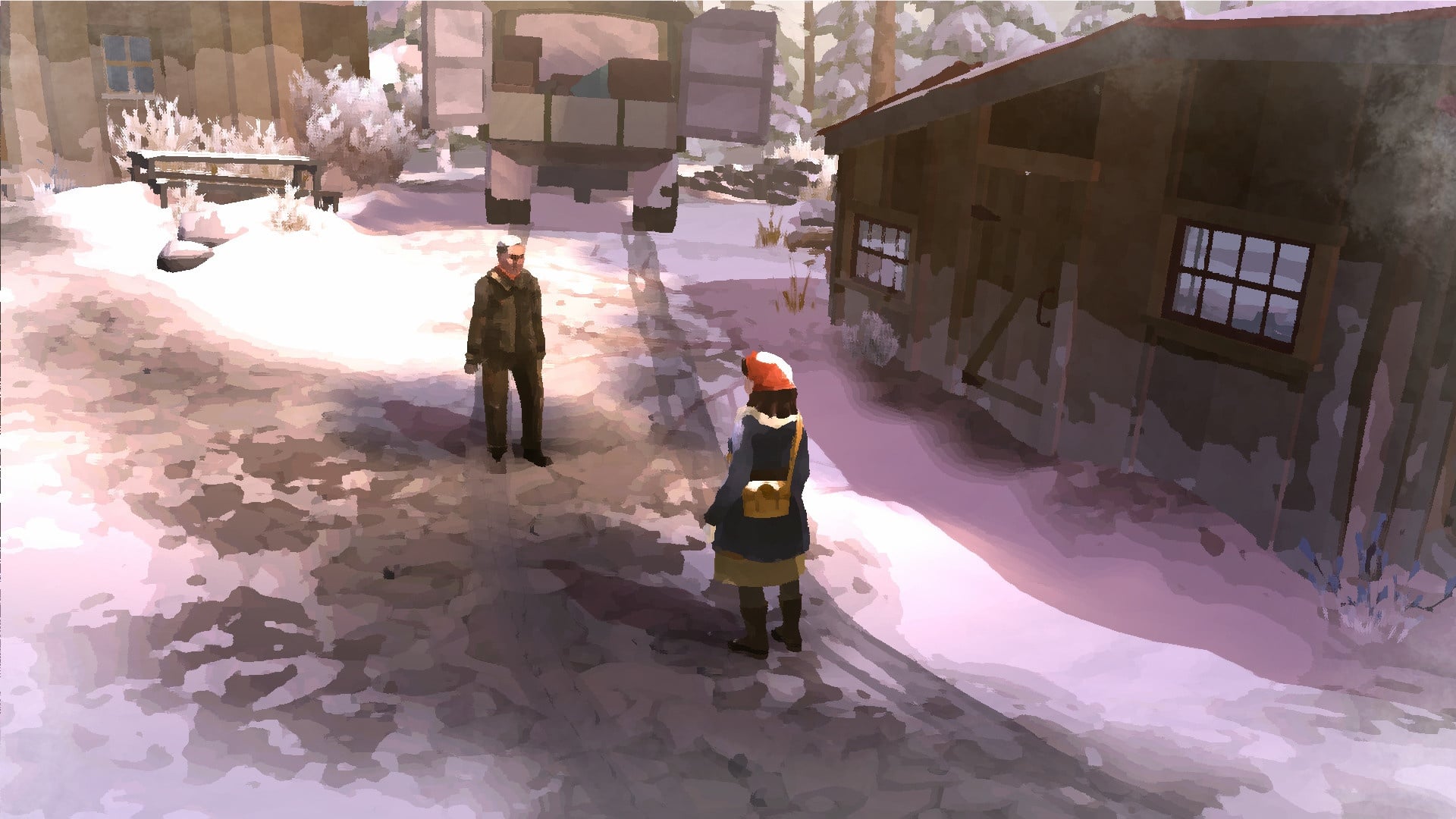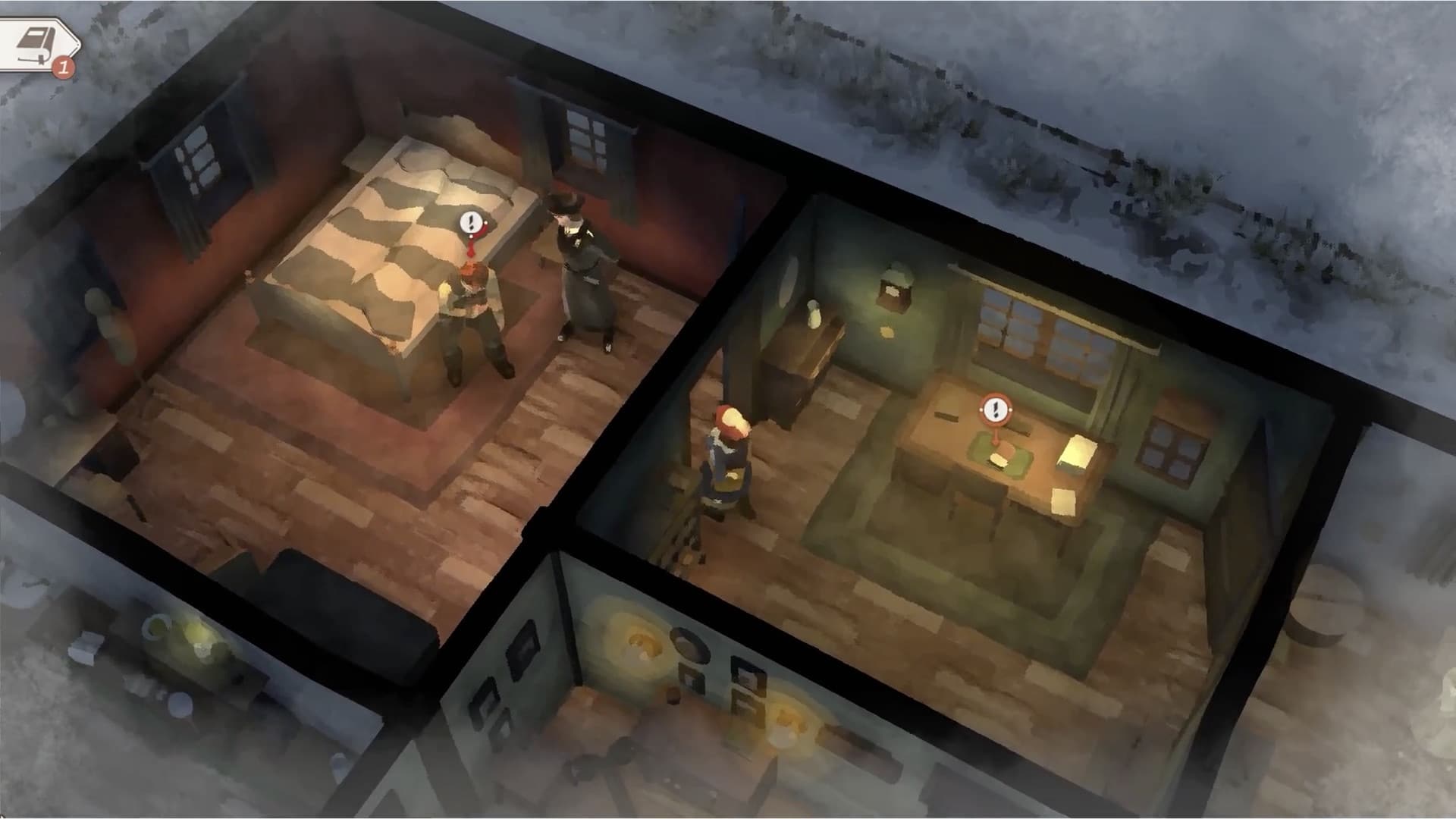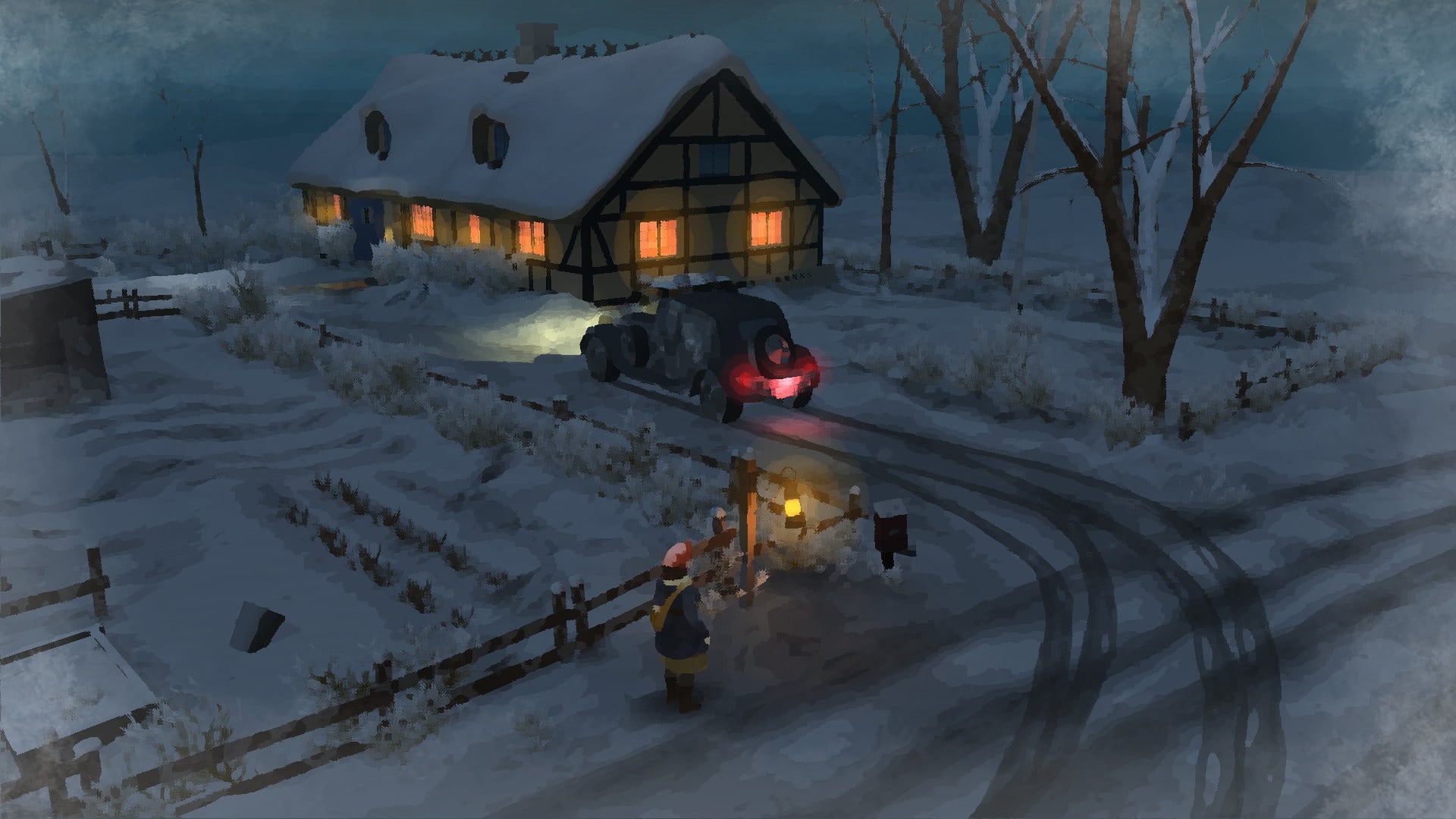In the adventure game Gerda: A Flame in the Winter, we must find our way between occupiers, locals and the resistance in German-occupied Denmark.
Denmark in February 1945: Like the rest of the country, the small village of Tinglev is occupied by German troops. But it is an open secret that the war has long since turned in favour of the Allies and that it is only a matter of time before Denmark is also liberated. The young nurse Gerda also knows this and therefore tries to survive the last months of the war unscathed.
We experience her story in Gerda: A Flame in Winter. The beautiful adventure game in the style of an impressionist painting repeatedly confronts us with hard and momentous decisions. We found out how well this works for you when we played it for ourselves.
At the centre of a conflict
As the daughter of a Dane and a German, Gerda understands both the Danes suffering under the occupation and the German minority. The latter had already wished to become part of Germany again before the war. By telling the story from Gerda’s perspective, the developers probably want to create a balanced picture and arouse at least limited understanding for the actions of most groups and people.
This works surprisingly well over long stretches: the game lets us understand the hardship and hopelessness of the war. We encounter charity, opportunism and fear that turn people into escape helpers, smugglers and deserters. But we also experience the cold and merciless grip of the National Socialist occupying power.
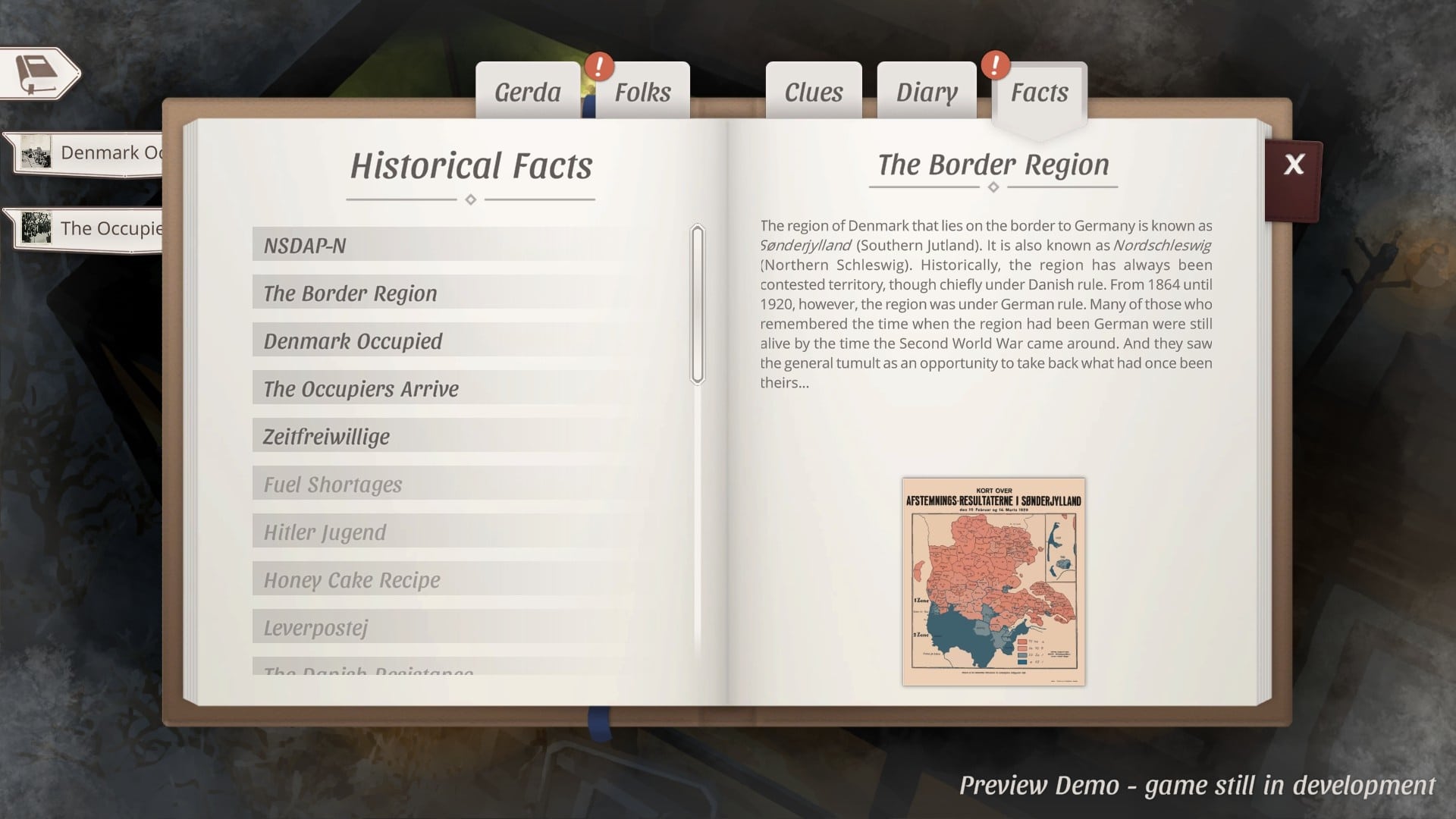
According to the developers, Gerda: A Flame in Winter was inspired by true events. Its story could probably have taken place in the same way. Fittingly, the narrative in Gerda’s diary is supplemented with historical facts about the war, the occupation and the crimes of National Socialism.
Painful Decisions
In the course of history, we mainly have to have conversations and make momentous decisions there. These usually lead to certain people or groups trusting us more or less. This can help or hinder us in future situations. Later, our decisions also have a massive influence on the fate of individual people. The developers also promise several endings and storylines for their adventure.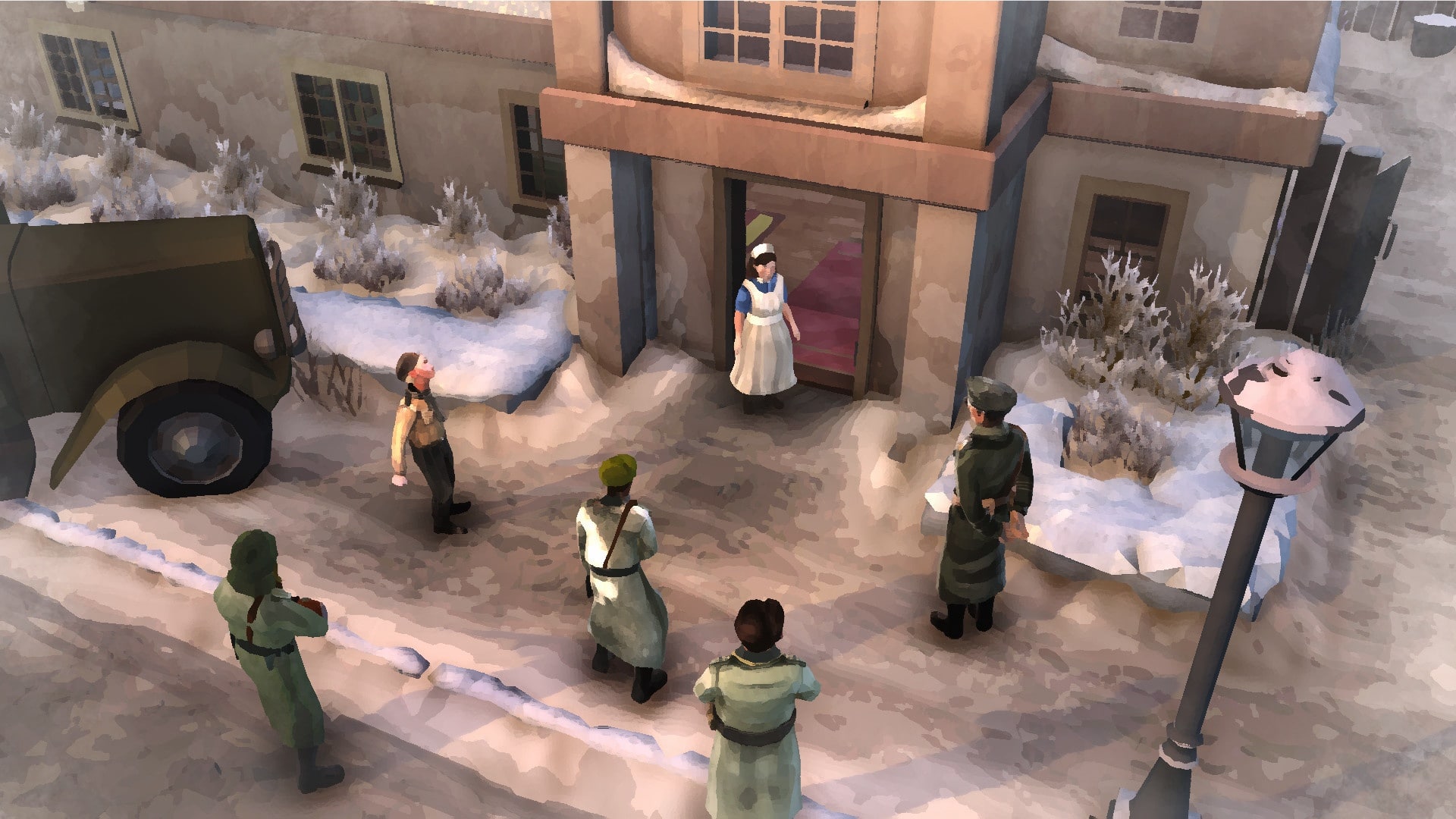
The pressure to make a decision usually also seems very believable: Resources are scarce because of the war, so we have to think carefully about who we leave the last dose of penicillin to. Germans and Danes distrust each other and we cannot always remain neutral – especially in the struggle between the Danish resistance and the Gestapo. With its – nowhere near as drastic – depiction of hardship and deprivation in wartime, the game is partly reminiscent of This War of Mine:
At the end of each section, Gerda writes a diary entry where we can choose a concluding sentence. Depending on how our nurse views the experience, we then receive a point for our Spiritual Energies, namely compassion, insight or quick-wittedness. In conversations we can then use this point, for example, to show understanding for others or to give a particularly shrewd answer and thus overcome problems.
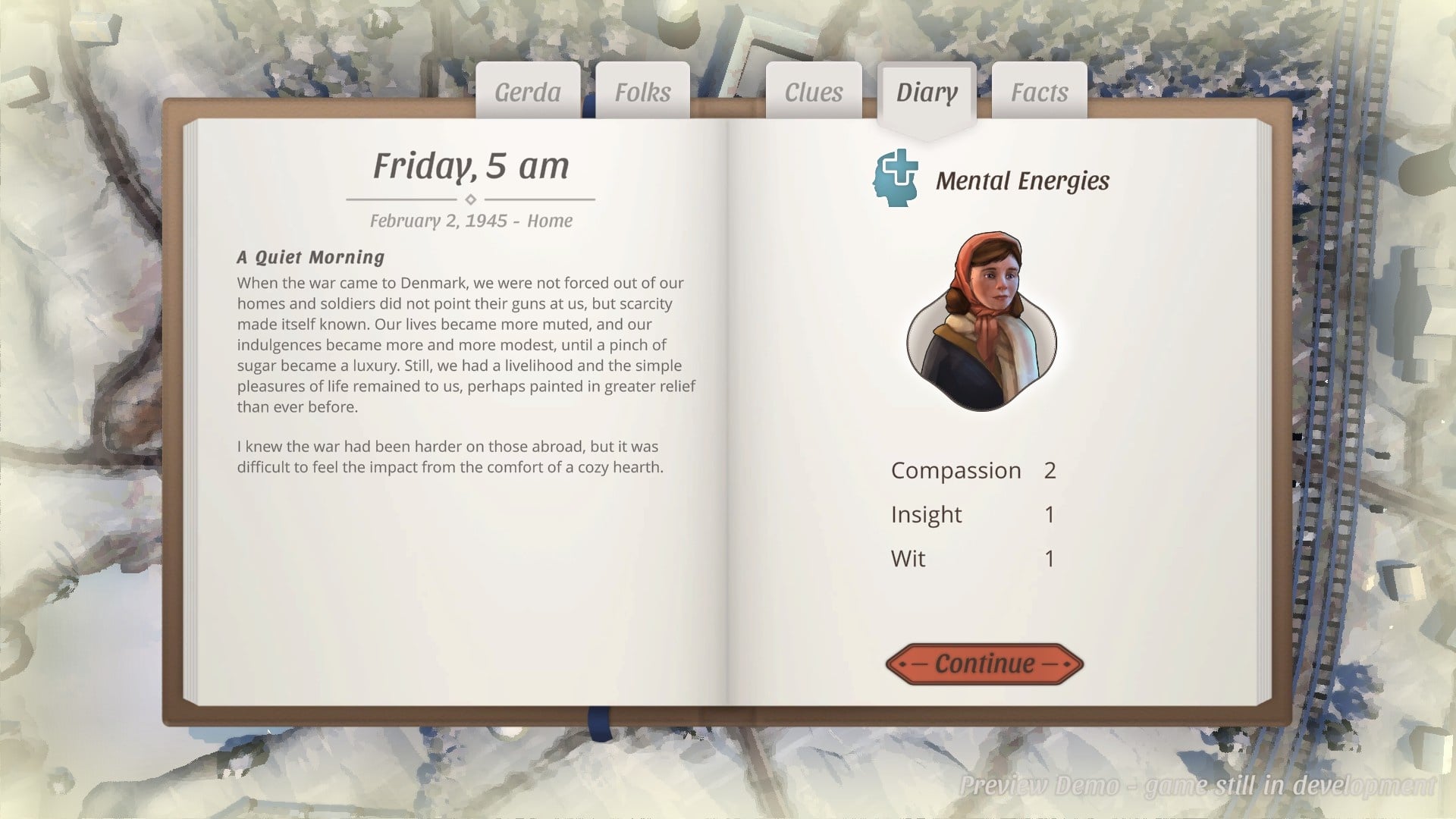
As the game progresses, we can focus entirely on our standing with a faction, such as the occupiers or the resistance. Or we can try not to get on anyone’s bad side, which is not so easy. This is made more difficult by the fact that answers in conversations can increase our reputation with one faction, but at the same time worsen it with another.
This is true even if no member of that faction is present. This decision in the game design gave us a bit of a stomach ache: Can the resistance really hold it against me if I pretend to be a good citizen in front of a Gestapo captain? And how do the rebels even find out about my behaviour?
Of course, one can argue that news travels fast in a small village or that the resistance has informants at Gestapo headquarters. And ultimately it is also understandable that it should not be made too easy to be friends with all factions in the village.
The basic impression of Gerda: A Flame in Winter does not change in this way: that of a solid adventure, which shines above all through its unique visual style, its touching story and its difficult and momentous decisions. The game is scheduled for release on 1 September 2022 for the PC and Switch.
Editorial conclusion
Gerda: A Flame in Winter is not only beautiful to look at, but so far it also tells a gripping story set in World War II. The relatively unusual perspective of a village nurse allows us to experience the hardship of the people up close, and evokes an understanding of how difficult it can be to behave properly in such a situation. In addition, it was very interesting, at least for me, to learn more about the situation in Denmark during the Second World War.
Gerda is also playfully convincing with difficult decisions, the effects of which we actually feel sooner or later. We really get into our character’s head, who has to weigh every word carefully in a village marked by mistrust and fear.
The game mechanics then also fit in well with the story about the young nurse and her husband Anders. All in all, nothing should stand in the way of the game becoming an exciting adventure. In any case, I myself am curious to see where Gerda’s story will lead us.

